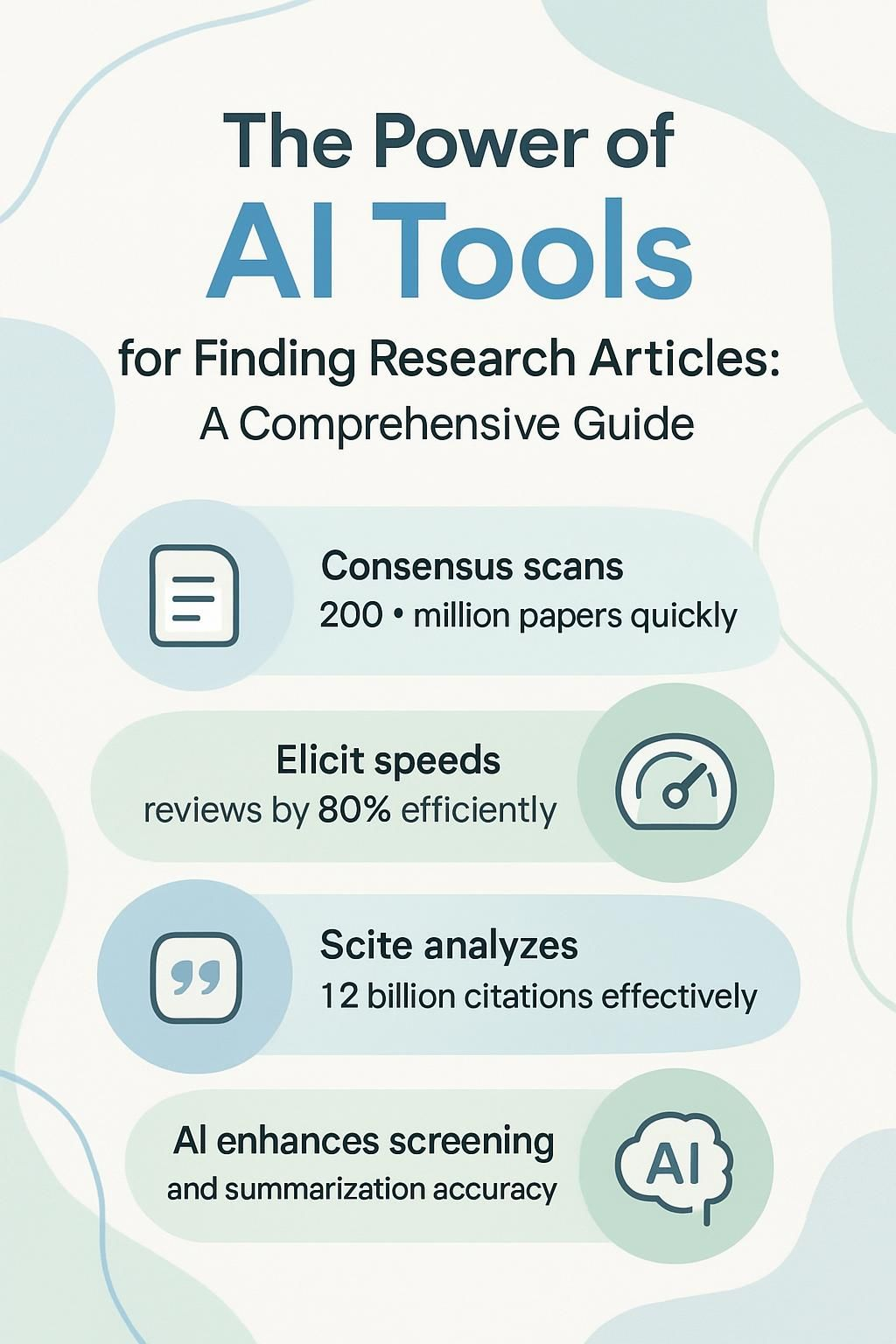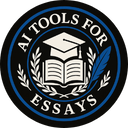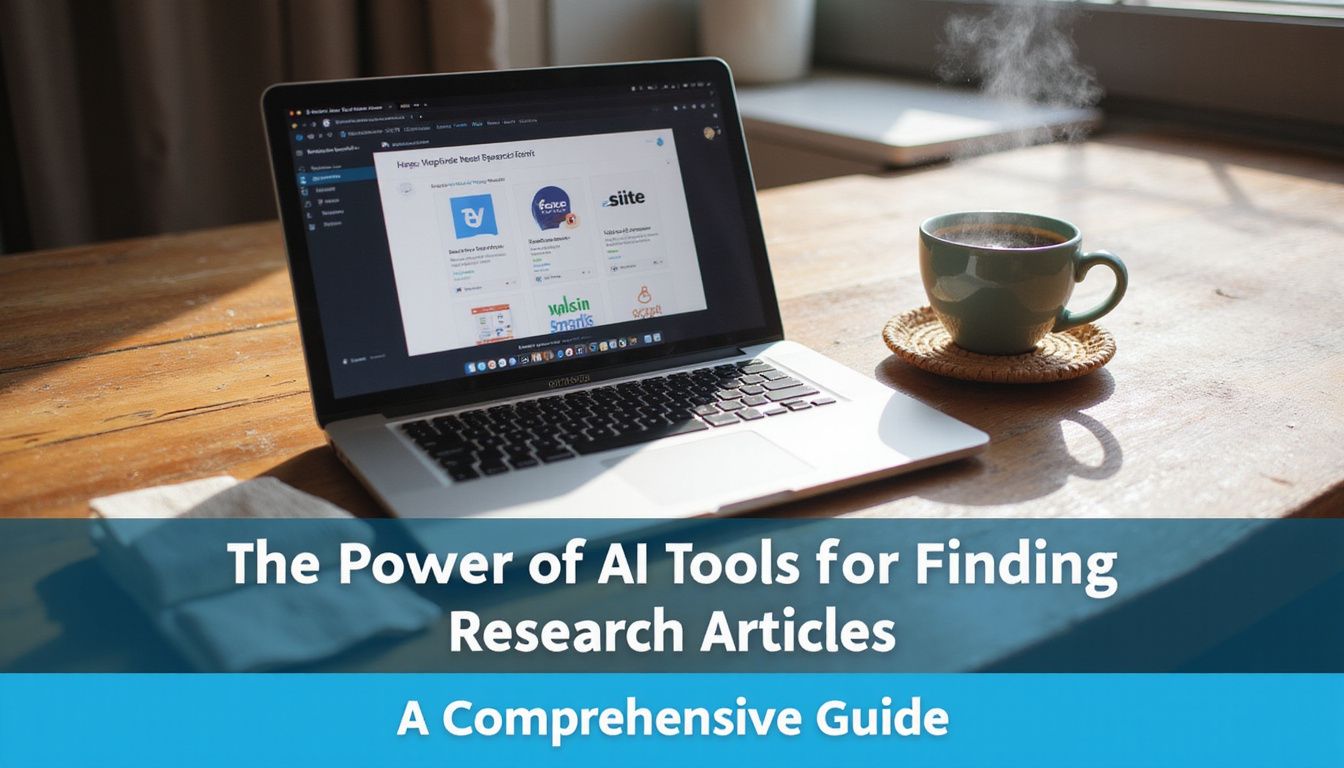Struggling to find the right research articles can feel frustrating and time-consuming. AI tools for finding research articles make this process faster and smarter. In this guide, you’ll learn about helpful AI platforms like Semantic Scholar, Elicit, and Scite to simplify your work.
Keep reading to save time on your next project!
Key Takeaways
- AI tools like Semantic Scholar, Elicit, and Scite simplify research by quickly finding accurate articles. Consensus scans over 200 million papers in seconds.
- Elicit speeds up systematic reviews by 80%, extracting data from figures and tables with 90% accuracy. It offers free and paid plans for varying needs.
- Scite analyzes citations, helping researchers find supporting or contrasting evidence fast. Its Smart Citations database includes over 1.2 billion citations.
- Tools like Sourcely provide advanced filters for research across fields like medicine or health studies, ensuring precise results.
- AI improves efficiency in literature screening, citation tracing, and summarization while saving time for both students and professionals globally.

Key Benefits of AI Tools for Research
AI tools can save time by quickly finding useful research articles. They make it easier to gather accurate information for your studies.
Faster access to relevant papers
Consensus allows access to over 200 million research papers. Researchers, students, and professionals trust this tool for quick results. It uses AI-powered search to skim vast databases in seconds.
This means no more time wasted on manual searches.
Semantic Scholar improves the process with its smart filters. It understands keywords like “maternal mortality” or “low birth weight.” You can focus on accurate findings without sorting through irrelevant data.
These tools bring speed and precision together for researchers globally.
Improved accuracy in data extraction
AI tools have transformed how researchers pull data from studies. Elicit, for example, can extract details from hundreds of papers within minutes. This includes extracting key facts from tables and figures with 90% accuracy.
It saves time while reducing errors often made by humans.
The Semantic Scholar corpus supports Elicit’s huge repository of over 125 million academic papers. This ensures a wide range of reliable sources for accurate results. AI tools like these make systematic reviews and meta-analyses more streamlined and reliable than before.
Research assistants powered by machine learning help focus on quality evidence without missing critical details in the data extraction process.
Simplified literature reviews
AI-powered tools like Elicit revolutionize systematic literature reviews. They cut review time by 80%, helping researchers analyze more evidence faster. These tools screen vast scientific literature efficiently, filtering key data from sources such as Medline and Google Scholar.
By extracting insights directly from tables, figures, and abstracts, tasks that once took weeks now take hours.
Platforms such as Scite add value by tracing citations with context analysis. This ensures users understand how a research paper fits into broader studies on topics like maternal health or infant mortality rates.
Semantic Scholar also excels in organizing search results for keywords like congenital anomalies or preterm birth with its advanced NLP capabilities.
Popular AI Tools for Finding Research Articles
Finding research papers is easier with smart AI tools. These tools save time and bring precise results quickly.
Consensus: AI-powered Academic Search Engine
Consensus helps access over 200 million research papers across many fields. Used by more than 5,000 universities globally, this AI-powered search engine simplifies finding scientific literature.
It uses tools like the Consensus Meter to show agreement levels on topics and link relevant studies. OpenAI’s powerful systems and custom large language models enhance its accuracy in data extraction.
Pro Analysis further assists researchers with deep insights for systematic reviews or meta-analysis.
Semantic Scholar: Semantic Understanding for Research
Semantic Scholar helps researchers find scholarly articles quickly. It uses artificial intelligence to understand the meaning behind search terms. This tool includes over 125 million academic papers in its database, gathered from many sources.
Users can perform keyword searches like “systematic reviews,” “maternal smoking,” or “child mortality” for precise results.
The platform also offers features like citation tracing and context analysis, making it easier to follow research trends or evaluate studies’ influence. Researchers studying topics like neonatal mortality or congenital abnormalities benefit from its semantic reader feature.
It simplifies complex papers by highlighting key points. Explore more tools in the next section about AI research assistants!
Elicit: AI Research Assistant
Elicit speeds up systematic reviews by 80%. It helps you analyze more evidence quickly. With access to over 125 million research articles, it simplifies searching for crucial information.
The tool offers free and paid plans. The Basic Plan allows data extraction from 20 papers per month at no cost. The Plus Plan costs $10 monthly and extracts data from 600 papers annually.
Experts like Veit Wasserfuhr and James Compagno praise its accuracy in data extraction and evidence interpretation. Elicit uses machine intelligence to pull detailed insights from tables, figures, or text within studies.
This feature makes literature reviews faster and easier for researchers working on topics like under-five mortality or sudden infant death syndrome.
Scite: Citation Analysis and Research Insights
Scite stands out with its Smart Citations database, offering access to over 200 million sources and 1.2 billion citations. It helps researchers find supporting or contrasting evidence for any study quickly.
With more than 1.7 million users worldwide—including students, scientists, and professionals—it simplifies citation analysis like never before.
This tool tracks how papers are cited in various contexts, assisting systematic reviews and data extraction tasks. Awards like the ISMTE People’s Choice Award highlight its credibility.
Emir Efendi, PhD, praises Scite for classifying citations effectively into categories such as supporting or opposing evidence—a valuable feature for research accuracy and insights.
Sourcely: Advanced Search with AI
Sourcely gives access to over 200 million research papers. Its AI tools, like Pro Analysis and Consensus Meter, use OpenAI’s technology to deliver precise results quickly. With advanced filters and proprietary search features, it simplifies finding scientific literature for students, healthcare experts, and more.
It offers flexible plans—Basic, Plus, Pro, Team, and Enterprise—to meet diverse needs. New options include the “Ask Paper” tool (beta) for deeper insights. The Consensus Ambassador Program connects researchers on social media platforms.
Sourcely sets a strong foundation for efficient systematic reviews with ease of use in mind.
Next: Features of Advanced AI Research Tools…
Features of Advanced AI Research Tools
Advanced AI tools make finding research articles easier and faster. They offer features that save time and simplify complex tasks.
Automated literature screening
Automated literature screening saves time. Tools like Elicit simplify this process. For example, Elicit provides one-click judgments for faster and more transparent screening. This helps researchers quickly find relevant studies based on criteria such as study design or sample size.
AI tools like Consensus refine searches by filtering articles by methodology or research focus. Screening becomes efficient, especially for systematic reviews in areas like maternal health, prematurity, and birth defects.
These tools improve research accuracy while reducing manual effort.
Data extraction from tables and figures
Elicit can save hours by extracting data from tables and figures in research papers. It processes hundreds of studies in minutes, reducing manual work. Users on the Basic Plan can extract data from 20 papers monthly for free.
The Plus Plan, costing $10 per month, allows extraction across 600 papers yearly.
This tool simplifies tasks like gathering insights from systematic reviews or clinical trials. Researchers studying gestation or health disparities can quickly pull key details without combing through pages manually.
Its precision ensures accurate results, boosting the quality of any scientific literature review or analysis.
Citation tracing and context analysis
Scite uses Smart Citations to classify references. It shows if a source supports, contrasts, or simply mentions another study. This helps you check evidence quickly and pick papers that fit your research needs.
Their Citation Statement Search allows users to find specific claims or data from various journals. This tool aids in understanding how studies connect and what context they provide within systematic reviews or gray literature exploration.
Research summarization and quick orientation
AI tools like Consensus and Semantic Scholar simplify the process of research summarization. Consensus uses OpenAI’s technology to provide Paper-Level Insights, emphasizing key findings.
This saves time by identifying the most important data within seconds. Researchers can efficiently understand critical details without needing to read entire papers.
Semantic Scholar applies semantic understanding to deliver summaries customized to specific queries. It detects patterns and provides quick insights into systematic reviews or placebo-controlled trials.
Tools like these make intricate subjects such as perinatal mortality, childbirth complications, or cardiovascular health studies more accessible, enabling quicker decision-making during research activities.
Choosing the Right AI Tool for Your Needs
Pick an AI tool that matches the type of research you do. Check how easy it is to use and if it covers your topic well.
Focus on research domain compatibility
Choose an AI tool that matches your research field. For example, Consensus works well for scientific literature with access to over 200 million papers. Elicit, on the other hand, offers a database of 125 million articles and is great for systematic reviews and data extraction.
Different domains demand specific features. Fields like medicine may need tools with advanced citation tracing or Cochrane Library integration. Researchers studying premature birth or heart rate variability might benefit from sources covering detailed studies in healthcare and physiology.
Always check if the tool supports your topic fully before beginning research.
Evaluate scalability and data coverage
Scalability matters in AI research tools. For example, Elicit’s Basic Plan allows data extraction from 20 papers monthly, while its Plus Plan handles up to 600 papers yearly for $10/month.
This works well for both casual researchers and heavy users. Tools like Semantic Scholar also support vast databases, making them ideal for large-scale academic needs.
Data coverage is crucial to finding relevant research quickly. Consensus serves over 5,000 universities worldwide, showing its broad reach across disciplines. Scite provides citation context analysis to cover diverse literature types such as systematic reviews or studies on diseases like tetraploid or stillbirths.
These features ensure detailed and accurate results customized to specific fields.
Assess user interface and ease of use
Good UI is key to AI research tools. Tools like Semantic Scholar and Elicit focus on simplicity. Their layouts help users find scientific literature quickly without much effort. For example, Mike Morrison, PhD, calls Elicit the future of scientific searching due to its easy design.
Clear menus and organized search results save time in systematic reviews. Sourcely offers advanced filters but keeps them user-friendly. Even features like citation analysis on Scite feel intuitive.
These designs make accessing research papers or insights fast for both experts and students alike.
Future of AI in Academic Research
AI promises smarter tools for finding scientific papers. Expect easier searches and faster ways to summarize research soon.
Enhanced semantic search capabilities
Semantic search engines, like Semantic Scholar and Elicit, dig deeper into research papers. They understand the meaning of your query instead of just matching keywords. For example, Elicit taps into 125 million academic papers from the Semantic Scholar corpus to deliver precise results.
Tools using machine learning can also uncover connections between studies that might not be obvious at first glance.
These advanced searches help researchers find hidden insights in scientific literature. Features like context recognition make it easier to locate valuable information within tables or figures.
This makes analyzing systematic reviews faster and more accurate—saving time for researchers focused on topics like energy production or immunization efforts.
Next, explore how these tools integrate with personal workflows seamlessly!
Integration with personal research workflows
AI tools like Scite and Elicit can blend into your research process smoothly. Scite helps by analyzing citations, offering context for each reference. Elicit acts as an AI research assistant, finding relevant papers while organizing key insights.
Both tools save time and reduce repetitive tasks.
Sourcely goes further with features like advanced searches and automated literature screening. This ensures you locate the best sources aligned with your topic or field quickly. Such tools adapt to specific needs, making systematic reviews or even tracking DOIs much easier for researchers in any domain.
Conclusion
AI tools make research faster and easier. They help find papers, extract data, and summarize studies with precision. Tools like Consensus, Elicit, and Scite save time while improving your work quality.
Whether you’re a student or a professional, these tools fit various needs. The future of research looks brighter with AI leading the way forward!
Discover how AI is revolutionizing another aspect of academia by exploring the use of AI tools in grading essays.


Leave a Reply